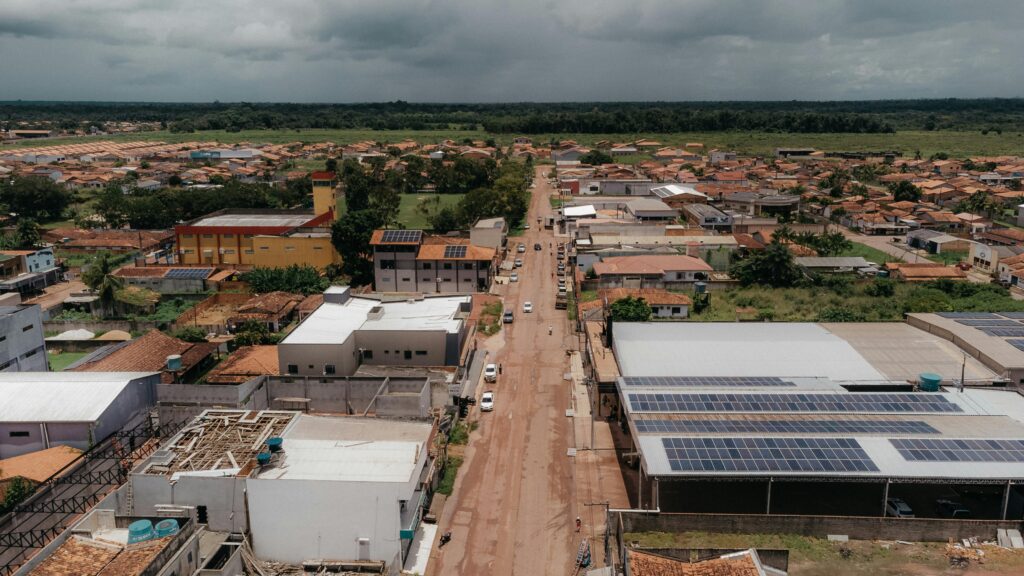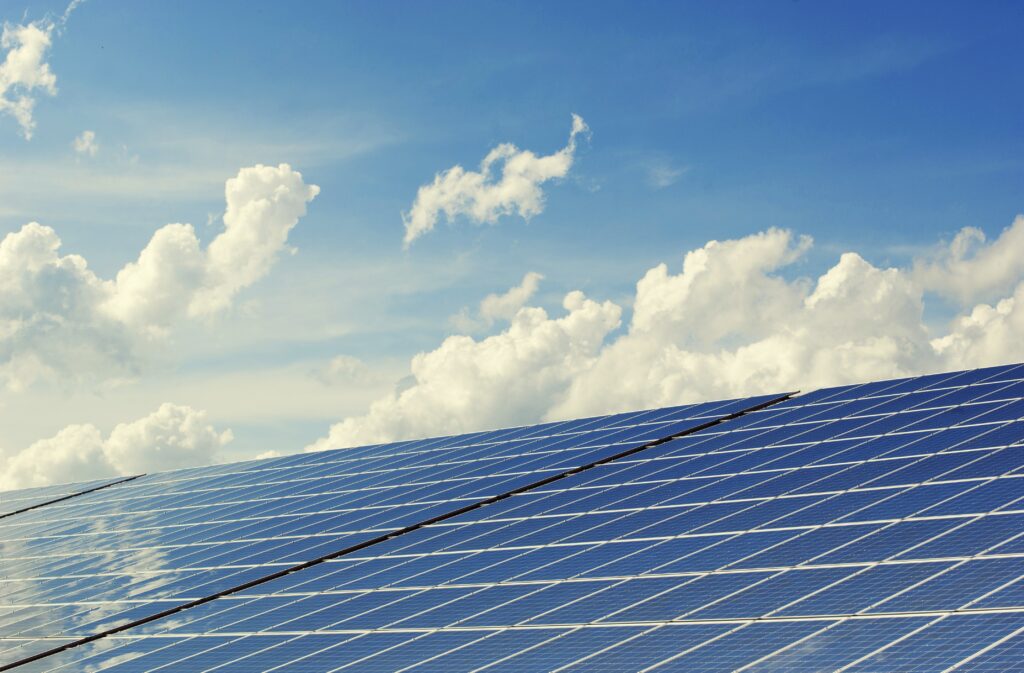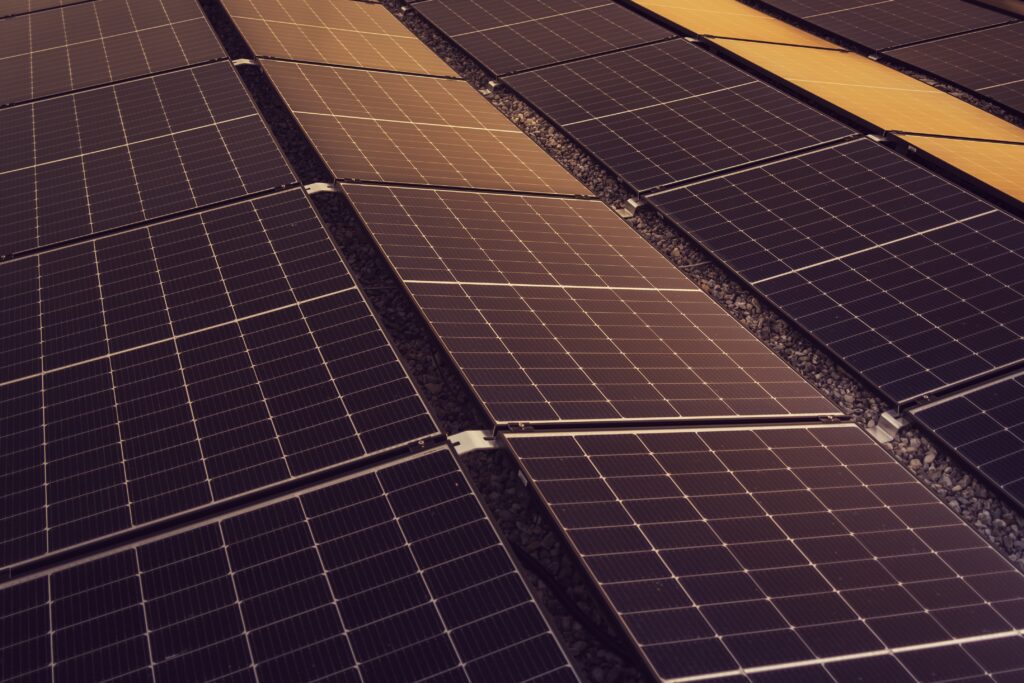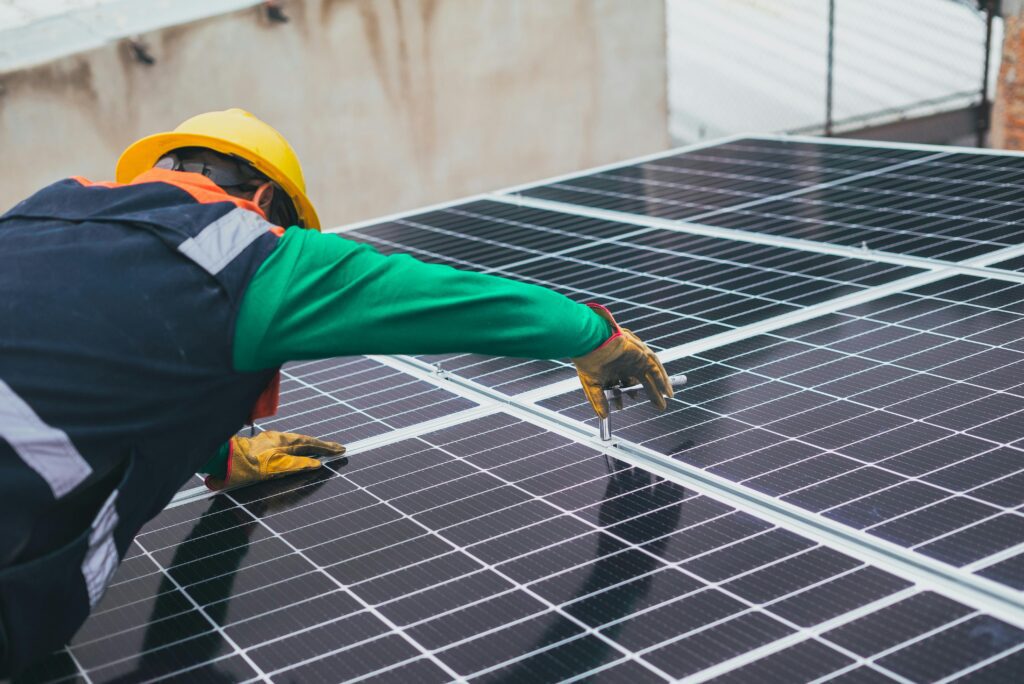Using solar power is a great way to get energy from the sun, which is good for the environment. Before installing solar panels, it’s important to figure out how much energy you need.
This process to calculate your solar energy needs helps you choose the right size of the solar plates and ensures it meets your needs. Whether it’s for your home, or business, or even when you’re off the grid, understanding your solar energy requirements is crucial for efficient energy use and cost savings.

Calculating your solar energy needs involves considering factors like your daily energy consumption, the size of your property, and your location’s sunlight exposure. By determining these factors accurately, you can estimate how many solar panels you’ll need and how much energy they’ll produce. This process not only helps you optimize your energy use but also contributes to reducing your carbon footprint and saving money on electricity bills.
Understanding Your Energy Consumption
Gathering Your Electricity Usage Data
To begin, collect your electricity bills or use a monitoring device to track your energy usage. This data will provide insights into your household’s daily and monthly electricity consumption patterns.
Analyzing Average Daily Consumption
Calculate your average daily energy consumption by dividing your total monthly kWh usage by the number of days in that month. This figure helps establish a baseline for how much electricity your solar system will need to produce each day.
Importance for Solar Calculation
Understanding your energy consumption is crucial for accurately sizing your solar energy system. It ensures that the system can meet your household’s energy needs effectively, reducing dependency on grid electricity.
Estimating Daily Energy Requirements
Now that you have a clear understanding of your average daily energy consumption, the next step is to estimate how much solar energy you need to generate each day.

This calculation helps determine the size and capacity of the solar energy system that best suits your needs.
Calculating Average Daily Energy Consumption
Calculate your average daily energy consumption by dividing your total monthly kWh usage by the number of days in that month. This figure serves as a baseline for the amount of energy your solar panels need to generate daily.
Factors Influencing Daily Energy Needs
Consider factors such as the efficiency of solar panels, weather conditions, and any future changes in energy usage. These factors play a crucial role in accurately estimating your daily energy requirements.
Importance of Accurate Estimation
Accurately estimating your daily energy needs ensures that your solar energy system can reliably meet your household’s electricity demands. This proactive approach helps optimize energy savings and enhances your overall energy efficiency.
Considering Solar Panel Efficiency
Understanding the efficiency of solar panels is essential for calculating your solar needs accurately. Solar panel efficiency refers to how well panels convert sunlight into electricity. Higher efficiency panels generate more electricity for a given area of sunlight.
Explaining Solar Panel Efficiency Ratings
Solar panel efficiency is measured as a percentage and varies by manufacturer and technology. Panels with higher efficiency ratings produce more electricity per square meter of space on your roof.
Impact on Energy Production
Choosing high-efficiency panels can significantly impact the amount of electricity your solar system generates.

This choice is critical for maximizing energy output and optimizing the performance of your solar installation.
Selecting the Right Panels
Consider your space availability and budget when selecting solar panels. Balance between panel efficiency, cost, and available roof space to meet your energy needs effectively.
Determining the Solar Panel Capacity Needed
Now that you understand your energy consumption and the efficiency of solar panels, it’s time to calculate the solar panel capacity required for your home.
Calculating Total Daily Energy Consumption
Multiply your average daily energy consumption (from section 2) by the efficiency of your chosen solar panels. This calculation gives you the total amount of electricity your solar panels need to generate each day.
Estimating Required Solar Panel Capacity
Divide the total daily energy consumption by the efficiency of the solar panels to estimate the capacity needed in kilowatts (kW). This step helps determine the number and size of solar panels required to meet your energy needs.
Adjusting for Real-World Conditions
Consider factors like sunlight hours, shading, and geographic location to adjust your calculations. These factors affect the actual energy production of your solar panels and ensure realistic expectations.
Determining the Solar Panel Capacity Needed
Now that you’ve chosen the type of solar panels, the next step is to determine the capacity of the solar panel system needed for your home.

This involves calculating the total energy your panels should produce to meet your daily electricity requirements.
Calculating Total Daily Energy Consumption
Multiply your average daily energy consumption (in kWh) by a factor that accounts for efficiency losses and variations in sunlight. This factor typically ranges from 1.1 to 1.25, depending on your location and panel orientation.
Accounting for Solar Panel Efficiency
Divide the total daily energy consumption by the efficiency rating of your chosen panels. This calculation helps determine the total capacity (in kW) required for your solar panel system.
Adjusting for Future Energy Needs
Consider any future changes in your energy consumption patterns or expansions to your household. This foresight ensures your solar panel system can accommodate increased energy demands over time.
Consulting with Solar Professionals
Seek advice from solar energy professionals or installers to validate your calculations and ensure you’re selecting the optimal system size for your specific needs.
Factoring in Sunlight and Location
The amount of sunlight your location receives directly impacts the efficiency and performance of your solar panels. Consider these factors when planning your solar energy system:
Understanding Sunlight Hours
Research the average sunlight hours per day in your location throughout the year. This information helps estimate how much energy your panels can generate on a typical day.
Seasonal Variations
Take into account seasonal variations in sunlight intensity and duration. Adjustments may be needed to account for reduced sunlight during winter months compared to summer.
Orientation and Tilt
Optimize the orientation and tilt of your solar panels to maximize sunlight exposure. Panels facing south typically receive the most sunlight in the northern hemisphere, while adjustments may be needed for shading or roof orientation.
Geographic Considerations
Different regions may have varying levels of solar irradiation and climatic conditions. Factor in local weather patterns and geographic features that may affect solar panel performance.
Battery Storage Considerations (Optional)
While not essential for every solar energy system, battery storage can enhance energy independence and reliability. Consider these factors when deciding on battery storage:
Storing Excess Solar Energy
Batteries store excess electricity generated by your solar panels during the day for use during periods of low sunlight or high energy demand.
Off-Grid vs. Grid-Tied Systems
Decide whether you want an off-grid system (independent from the utility grid) or a grid-tied system (connected to the grid with optional battery backup). Each option has its advantages based on your energy needs and goals.
Calculating Battery Capacity
Calculate the required battery capacity based on your energy usage patterns, desired level of energy independence, and backup needs during power outages.
Lifespan and Maintenance
Consider the lifespan and maintenance requirements of batteries. Lithium-ion batteries are popular for their longevity and efficiency, but they require periodic maintenance to ensure optimal performance.
Consulting with Solar Professionals
Consulting with solar energy professionals or installers is crucial to ensure your solar energy system is optimized for efficiency and performance. Here’s why professional advice is beneficial:
Expert Assessment
Solar professionals can conduct a detailed assessment of your energy needs, site conditions, and financial considerations. This assessment helps determine the most suitable solar solution for your specific requirements.
System Design and Sizing
Professionals can design a solar energy system tailored to your home’s roof space, orientation, and energy consumption patterns. They ensure the system is correctly sized to maximize energy production and savings.
Installation Expertise
Experienced installers ensure proper installation of solar panels, inverters, and any optional components like battery storage. This professional installation minimizes risks and ensures system reliability.
Regulatory Compliance
Solar professionals are familiar with local regulations, permitting requirements, and incentives for solar installations. They can guide you through the paperwork and ensure compliance with all necessary standards.
Conclusion
Calculating your solar energy needs is a proactive step towards harnessing renewable energy and reducing your reliance on conventional electricity sources. By understanding your energy consumption, selecting the right solar panels, and considering factors like sunlight and battery storage, you can design a solar energy system that meets your household’s needs efficiently.

Investing in solar energy not only contributes to environmental sustainability but also offers long-term financial benefits through energy savings and potential incentives. Consulting with solar professionals ensures that your system is expertly designed, installed, and efficiently maintained for optimal performance.
Take charge of your energy future by exploring solar options that empower you to achieve energy independence and sustainability in 2024 and beyond.
Frequently Asked Questions (FAQ)
1. How do I calculate my average daily energy consumption?
To calculate your average daily energy consumption, divide your total monthly kWh usage by the number of days in that month. This figure helps estimate how much electricity your solar panels need to generate each day.
2. What factors should I consider when choosing solar panels?
Consider factors such as solar panel efficiency, durability, warranty, and type (e.g., monocrystalline vs. polycrystalline) based on your budget and energy goals.
3. Do I need battery storage for my solar energy system?
Battery storage is optional but beneficial for storing excess solar energy and enhancing energy independence, especially during power outages or off-grid situations.
4. How can I optimize my solar panel system for maximum efficiency?
Optimize your system by ensuring proper orientation, tilt, and placement of solar panels to maximize sunlight exposure throughout the day and year.
5. What are the financial incentives for installing solar panels?
Check local incentives such as tax credits, rebates, and net metering programs that can help offset the upfront cost of installing a solar energy system.
Note:
If You have any doubts or queries, Feel Free to Contact us On Our LinkedIn Page!
2 Responses